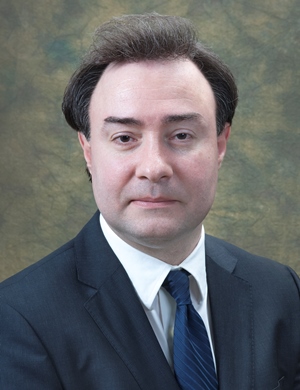
The Wayne State University School of Medicine Director of Patient Safety Dennis Tsilimingras, M.D., M.P.H., an assistant professor of Family Medicine and Public Health Sciences who studies post-discharge adverse events, has been awarded a new three-year, $1.2 million R01 grant from the Eunice Kennedy Shriver National Institute of Child Health and Human Development to apply his knowledge to infants transitioning from stays in the neonatal intensive care unit.
While Dr. Tsilimingras' previous Agency for Healthcare Research and Quality-funded R01 study looked at rural and urban adult patients, little has been done to examine adverse events specifically during the transition when children are discharged from the hospital to home.
For the prospective cohort study "Post-discharge adverse events among NICU neonates," his team will work to identify the incidence rate and risk factors of this high-risk pediatric population.
"The identification of these risk factors will significantly help efforts in improving the delivery of health care by enabling children's and community hospitals to develop interventions to improve the hospital discharge process and neonatal patient safety during this vulnerable transition of care from the hospital to home. Thus, this project has the potential of becoming a landmark study and having a major impact on the field of pediatric patient safety," he said.
Dr. Tsilimingras expects to recruit at least 500 study participants from Children's Hospital of Michigan and Hutzel Women's Hospital in the first year of the project. Annually in the United States, an estimated 70,000 hospitalized children experience an injury caused by medical management rather than the underlying disease or condition of the patient, he said.
Approximately 60 percent of adverse events are considered potentially preventable. Post-discharge adverse events often result from care provided during a hospitalization, but the majority are not detected until after patients have been discharged to home, he added. The adverse events that are detected in the hospital and appropriately managed still lead to significant symptoms after the patients are sent home. Adverse events also arise because of the transition in care itself.
"Thus, medical and public health professionals now recognize that post-discharge adverse events are a major public health concern," he said. "This, however, has not translated into research or widespread policy efforts in the pediatric population. As a result, little is known regarding post-discharge adverse events in children and consequently a lack of consensus on what should be done for prevention."
The post-discharge incidence rates of 19 percent to 28 percent in three adult studies were about five to seven times higher than the in-hospital adverse event incidence rates for adult patients. "It is plausible that the post-discharge adverse event incidence rate in children may be much higher than the in-hospital rate, as with adults," he added.
The number for this grant is R01HD089000.